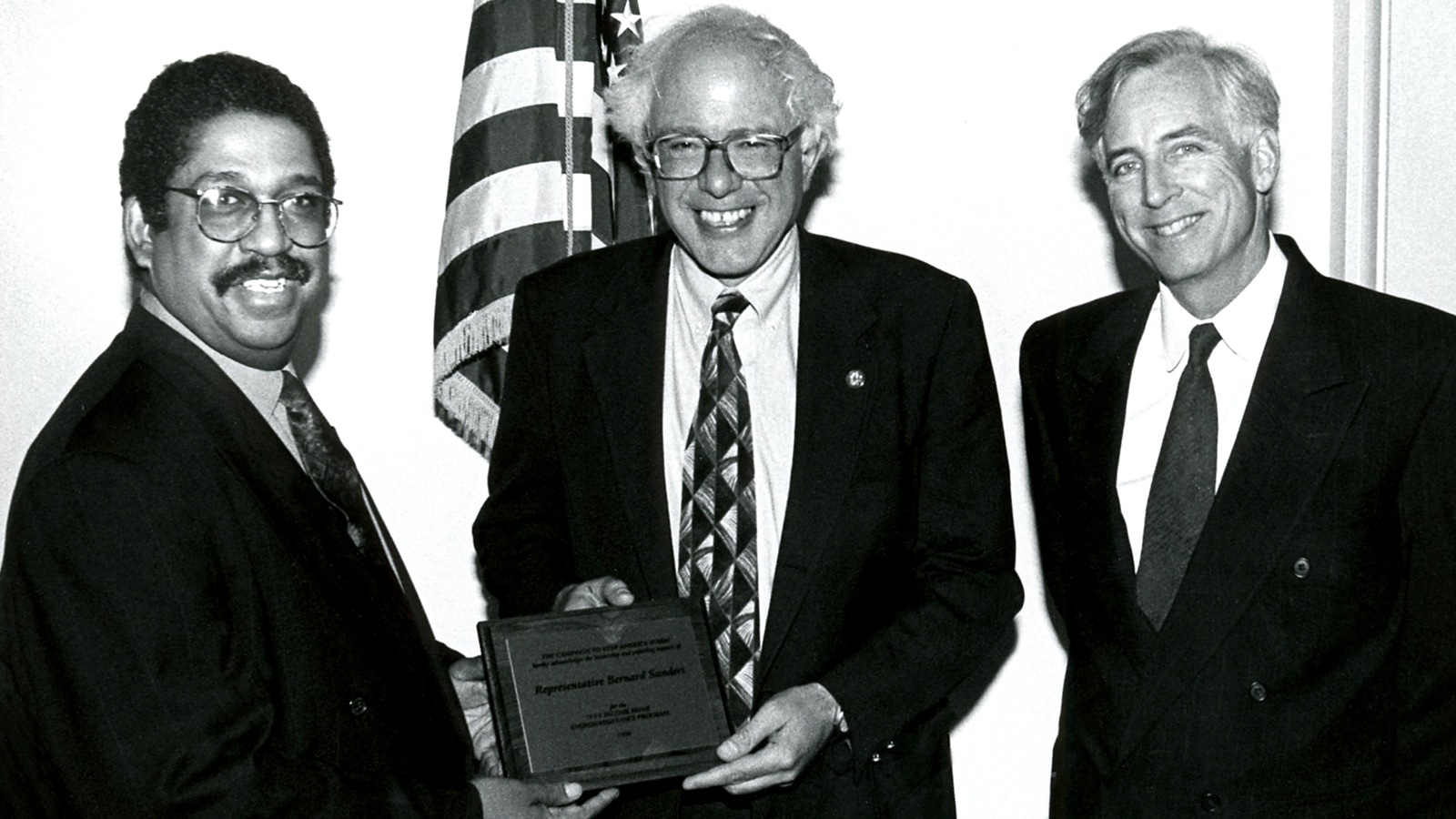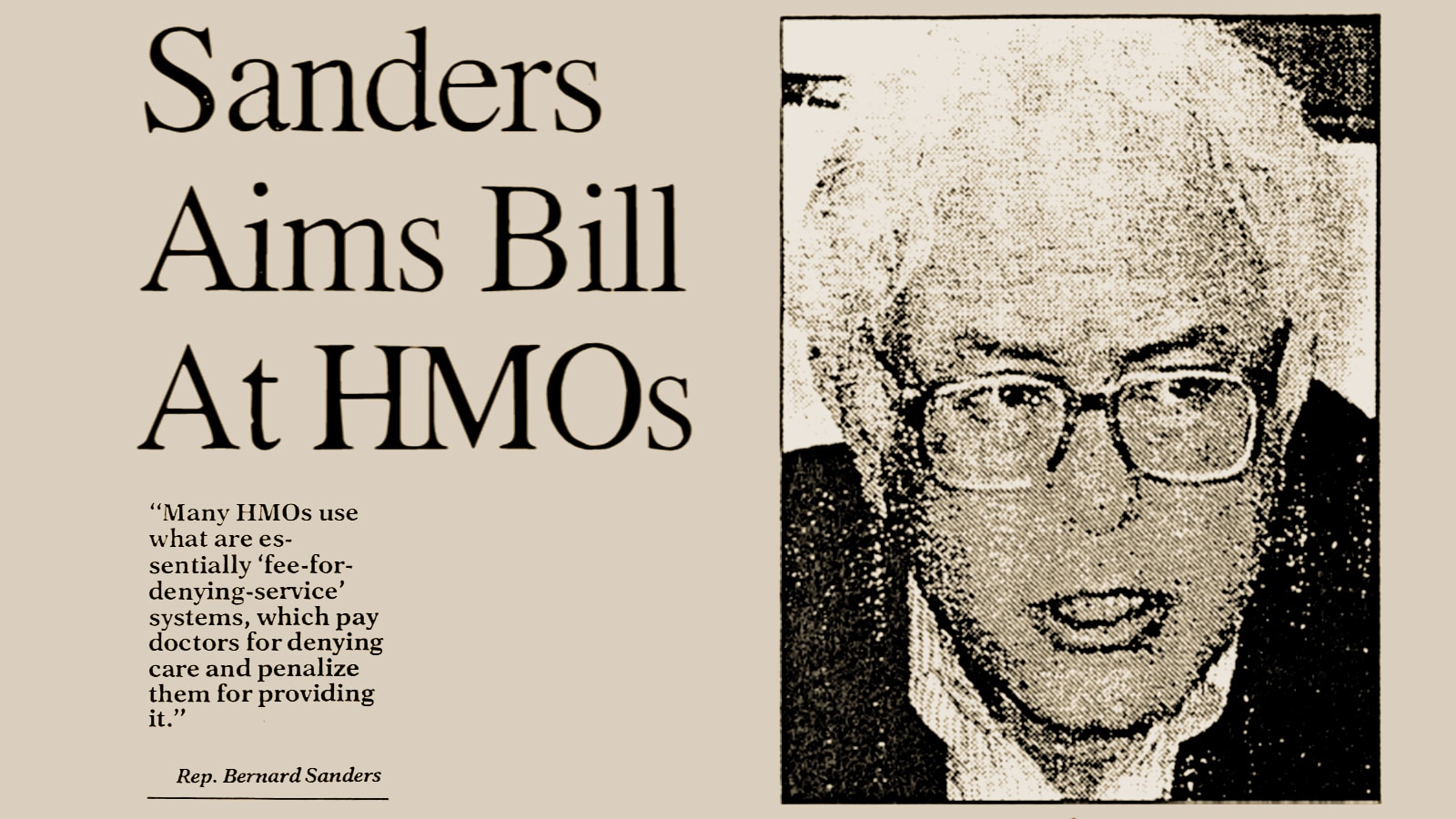In 1995, Rep. Bernie Sanders stood up to Republicans in Congress who sought to cut funding for the Low Income Home Energy Assistance Program (LIHEAP), which provided thousands of low-income Vermonters and hundreds of thousands nationwide with the funds to heat their homes. The LIHEAP program is particularly critical to senior citizens.
Sanders organized colleagues in Congress to urge President Bill Clinton to release funds for the program as winter approached. A letter to the White House on Dec. 14 stated:[1]
“As you may know, many of the coldest states draw down most, if not all, of their LIHEAP early in the fiscal year to secure winter heating in the homes of their poorest residents. Because the previous two continuing resolutions failed to take into account the need for cold weather states to draw down their funds immediately, many of the coldest states cannot operate their LIHEAP programs. As a result, unless you take emergency action, our states will only be able to provide heat to a fraction of the households in need of heating assistance this winter.”
“Last year, an estimated 6.1 million households received LIHEAP benefits. Three-quarters of those households had incomes of less than $8,000 per year. The average LIHEAP family spent 18.4 percent of their income on the cost of home energy, compared with 6.7 percent for all households. Unless action is taken immediately, hundreds of thousands of Americans who live in the coldest states will be unable to heat their homes. We don’t want to see families forced from their homes because of unpredictably cold weather.”
On Dec. 22, Electric Co-op reported that “President Clinton took exception to the White House Congressional budget stand-off, authorizing the release of $578 million in LIHEAP funds. Even more heartening, though, is the story behind the story. It is about one member of the House of Representatives – Vermont’s at-large Congressman Bernie Sanders – and what he did to make it all happen.”[2]
Sanders appealed to the conscience of the Congress to build a bipartisan groundswell of support that broke loose the LIHEAP funds, as calls came in from around the country from mayors, media, city selectmen, state officials, private charity workers, social activists, and constituents who were being turned away for LIHEAP funds.[2]
“Bernie knew many other House members from cold-weather states were also getting calls like this,” said Jane O’Meara Sanders, the Congressman’s wife and unpaid administrative assistant who runs his Washington and Burlington offices. “What we decided to do was organize. It was clear that the Republican Congress was not going to act. It had “zeroed out” the program. So we focused our efforts on Executive Branch action. We knew the White House could release the funds, but first, there had to be a demonstration of Congressional support and media coverage to call attention to the plight of these people.”[2]
“Bernie held a press conference, and a chain reaction set in, which spread to sympathetic House Republicans. Of the 130 members who finally signed on, there were 113 Democrats, 26 Republicans, and one Independent (Sanders).”[2]
“Three days later, Sanders got a call from the White House at home. President Clinton, working with HHS Secretary Donna Shalala, had found a way to release $578 million, saving the $300 million in emergency funds for later. That brought the total of LIHEAP funds to $810 million.”[2]
“Rep. Earl Pomeroy (D- North Dakota), one of the signers, said, “If it were not for the leadership of Bernie Sanders and other members…many of our state’s poorer and elderly people would have simply been forced out of their homes.”[2]
Bernie continued to fight for LIHEAP funds annually for several winters to come.
 Back to Timeline
Back to Timeline


